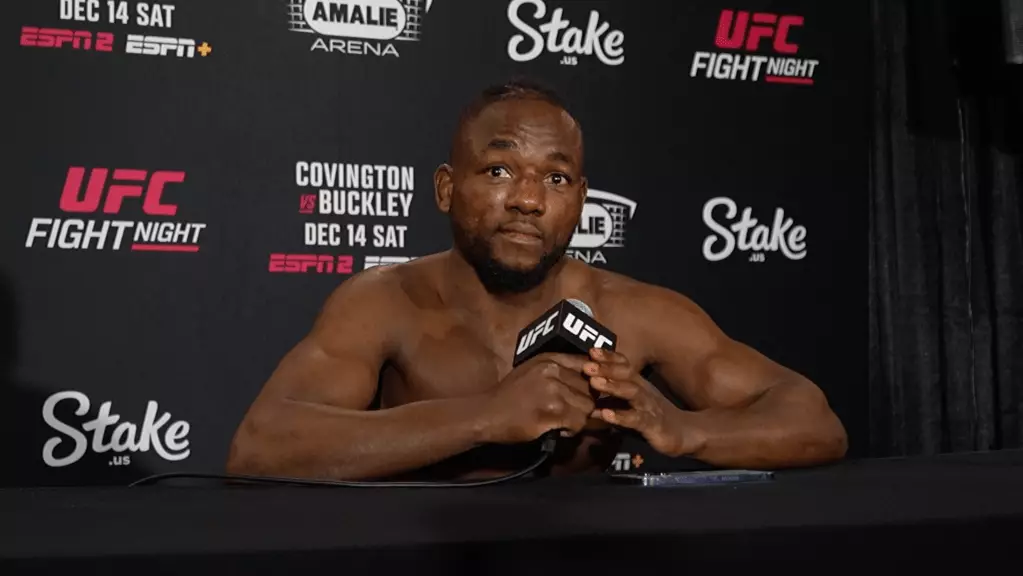After a striking victory in the octagon, Manel Kape is making headlines not just for his performance but for his bold aspirations within the UFC flyweight division. With a record of 20 wins and 7 losses, Kape has demonstrated considerable resilience and skill, solidifying his place as a serious contender. His latest fight against Bruno Silva at UFC on ESPN 63, held in Tampa, Florida, showcased not only his striking prowess but also marked a pivotal moment in his career. As Kape continues to rise, he is now vocalizing a desire for a title shot against current champion Alexandre Pantoja, laying bare the frustrations many fighters face in the quest for glory.
Kape’s knock-out victory in the third round against Silva underscored his skills, but it also amplified his frustrations regarding the organizational dynamics of the UFC. After the fight, Kape seized the opportunity to voice his concerns and demands, emphasizing the urgency of his career trajectory. At 31 years old, he is acutely aware that time is not a luxury he can afford. “I’m not going to wait for anybody,” Kape insisted, reflecting the impatience that plagues many fighters who contend not only with opponents but also with the promotional machinery that governs fight opportunities.
Kape’s frustration primarily stems from repeated scheduling problems with fellow contender Kai Kara-France. The two were set to fight on two occasions, both of which fell through due to varied circumstances. Kape expressed genuine dissatisfaction with this situation, highlighting the inherent challenges athletes face outside the cage. “I have a daughter, and sometimes I don’t see her all day,” he explained, making it clear that family obligations affect everyone, regardless of profession. By drawing attention to this, Kape humanizes the often glamorized life of a fighter, creating a relatable image for fans and aspiring athletes alike.
Despite these setbacks, Kape’s determination remains steadfast. His candid request for a title shot reflects a growing sentiment in mixed martial arts that fighters should have more agency over their careers. Kape’s urgency is not simply about wanting to fight; it’s about reclaiming control in an environment where opportunities can feel capricious and out of reach.
While Kape’s assertive demands are commendable, UFC President Dana White’s response suggests that Kape may not be the next in line for a title shot. White’s acknowledgment of Pantoja’s recent knockout victory might complicate Kape’s ambitions. The dynamic within the Flyweight division now appears to be influenced not just by performances but by potential matchups that could draw more fan interest or financial gain.
Kape’s acknowledgment of White as a neighbor adds an interesting layer to their dynamic. It raises the question of how personal relationships can bridge the gap between fighters and promoters, potentially opening doors that the conventional route may not. Kape’s willingness to go beyond traditional avenues, even to the extent of knocking on White’s door, paints him as a fighter willing to rethink the traditional narratives surrounding athlete management and fight promotion.
As Kape continues to push for his shot at the title, he embodies a broader movement within the UFC: fighters asserting their worth and demanding respect. His actions challenge the status quo and highlight the importance of open dialogue between athletes and promoters. Charges such as Kape’s are indicative of an evolving landscape in mixed martial arts where fighters are increasingly unafraid to speak their minds.
Manel Kape’s narrative is a reminder that behind every athlete’s journey is a multifaceted struggle. Whether or not he secures a title shot against Pantoja remains uncertain, but his fight for recognition and respect is undeniably relevant. Kape’s journey is emblematic of countless fighters who seek more than just victories; they aim for acknowledgment and opportunity within a system that can often marginalize their potential. As fans, we must continue to support such voices, ensuring that they resonate within the heart of the sport.

